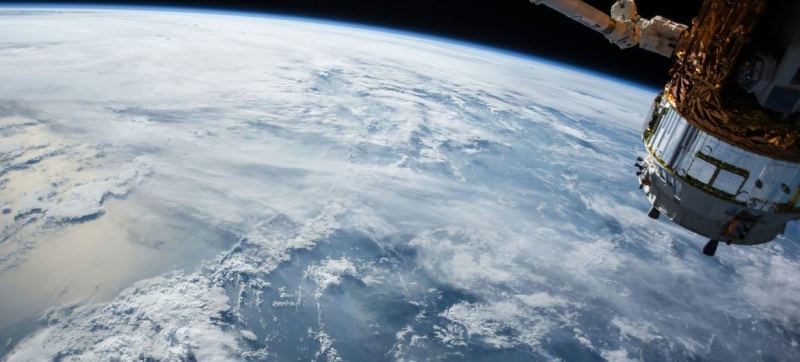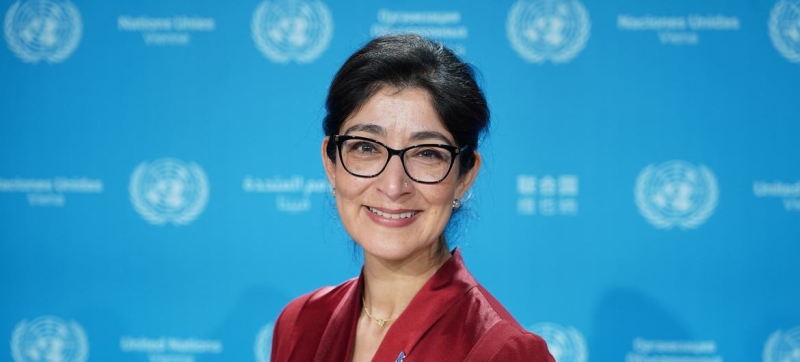
View of the Earth from orbit. INTERVIEW | The UN is developing legal principles for lunar exploration Economic Development
Today, many more devices are launched into space than ten years ago, and at the same time, scientists find it difficult to say exactly what impact emissions from launches have on the Earth’s atmosphere. It is quite possible that we will soon find that we are already in an emergency situation. The director of the UN Office for Outer Space Affairs, Aarti Holla-Maini, spoke about this in an interview with Anton Uspensky from the UN News Service. The conversation took place on the eve of the International Day of Human Space Flight, which is celebrated on April 12.
Anton Uspensky: Advances in technology make space exploration more promising than ever before. At the same time, space has ceased to be the business of individual states or interstate projects – it is increasingly commercialized. What is the UN doing to ensure that this competition remains peaceful and fair?
Aarti Holla-Maini : I wouldn’t call it a “competition.” I think we should abandon the idea that there is a space race like the one that existed during the Cold War. Innovative and pragmatic approaches now prevail, which is why we are seeing more private commercial companies getting involved in space exploration.
If national space agencies undertake large space missions on their own, such projects are likely to be long-term and much more expensive. The private sector is helping space agencies. In particular, NASA invites private firms to put forward their proposals, and also selects companies to participate in flights to the Moon. If NASA works on its own, it will cost it much more. NASA spreads the risk by funding multiple missions over a period of time, which increases the chances of success.
As you know, the United Nations has a Committee on the Peaceful Uses of Outer Space purposes. It is where treaties and resolutions are born, where the guiding principles that underpin everything we see in the space economy today are developed. Our goal is to ensure transparency and open dialogue around all innovations, even those carried out by private companies.

Director of the United Nations Office for Outer Space Affairs Aarti Holla-Maini.
AU: Ever since the space age began, the Moon has been considered as a possible launching pad for deep space exploration, where research laboratories can be built, valuable minerals can be mined, etc. What does the UN say about the exploration and development of the Moon?
A. H-M: The UN Secretariat includes the Committee on the Peaceful Uses of Outer Space, as well as two subcommittees on this topic, one scientific and technical, and the other legal. Lunar activity is covered by both subcommittees. It is in them that discussions on the problems of developing space resources take place.
Who owns the lunar soil? Is it possible to mine minerals on asteroids? How to deliver these resources to Earth?
Who owns the lunar soil? Is it possible to mine minerals on asteroids? How to deliver these resources to Earth? All this is complicated questions. They question some of the founding principles of the Outer Space Treaty, which states that space resources belong to all humanity. This is a difficult discussion. The Committee is moderating this dialogue and is considering developing guidelines on this issue.
In February, the Committee received a proposal to establish an advisory mechanism on sustainable lunar activities. We hope that the corresponding agreement will ultimately be signed in June at the plenary meeting, which may lead to the creation of an initiative group to consider more practical aspects of the problem.
AU: This will be one of the key topics of discussion at the conference on sustainable lunar activity in June, right?
A. H-M: Absolutely right. Some time ago, we took the initiative to organize the first UN conference on sustainable lunar activities. In this forum we hope to simply explore the scale of the challenges we face. Who else is planning flights to the moon? What can we do to expand global dialogue at the multilateral level through the UN?
AU: B Currently, large-scale space pollution is occurring in space. What is space debris? Why is it dangerous and what is being done to minimize its risks? What is the UN’s position on this issue?
A. H-M: You can look at this issue from different angles. Of course, space debris causes many problems. Space debris consists of many objects of varying sizes, and we don’t always have a complete idea of where they are. It is therefore critical that we collaborate to pool knowledge and capabilities in this area to improve space safety for all.
So what are we doing? We are developing guidelines for a long-term strategy in this matter. We are planning to host a United Nations teleconference on the topic of space awareness later this year. This event aims to bring together various interest groups and service providers. The Chinese, Indians, Russians, Europeans, Americans will come together to coordinate their work and discuss future plans.
We do not set ourselves the task of transforming the UN to some global space agency. Our task is to establish dialogue
We do not know what format this discussion will ultimately take, and we do not set ourselves the task of turning the UN to some global space agency. Our task is to establish dialogue. We hope we can promote progress through open discussion.
I would like to draw your attention to the other side of the pollution issue. The forum we are going to convene this year is dedicated to the topic of atmospheric ablation. Nowadays, many more devices are launched into space than ten years ago. The question arises what impact emissions from launches have on the atmosphere. In addition, there is now much more debris from rockets and old satellites that burn up upon re-entry. We were contacted by UNEP, the environmental arm of the UN: what do we know about this? How serious a problem is this? It is quite possible that we will soon discover that we are already in an emergency situation. But we don’t know yet.
AU: Is there enough enthusiasm on the part of the younger generation in space science, in space exploration? Do you see It is a force that can advance the global peaceful use of space ?
A. H-M: Yes, there is a Space Generation Advisory Council that actually brings together young people from all over the world, and they are very active. Youth are extremely concerned about issues related to space.
One of our programs is called “Space for Women”, and through it we try to motivate the younger generation, young girls and women deal with the problems of space exploration. We have wonderful examples of women breaking the glass ceiling. They hold leadership positions at various levels of the space ecosystem.
You know, the other day I met with the female president of the Canadian Space Agency. She talked about the OSIRIS-REx program, a scientific mission in which it is planned to deliver samples from space for analysis on Earth. They had a technical problem: the instrument had two tuning forks that were not calibrated properly. One of the engineers happened to be a musician, and he realized that these forks were trying to resonate with each other. He used his musical background to solve an engineering problem. He suggested putting a spacer on one of these forks so they could do their own thing and then they would stop resonating. This is just one example of how musicians, artists, virtually anyone can become part of this very dynamic innovative sector.
